What You Didn’t Know About Boris Johnson’s Turkish Roots
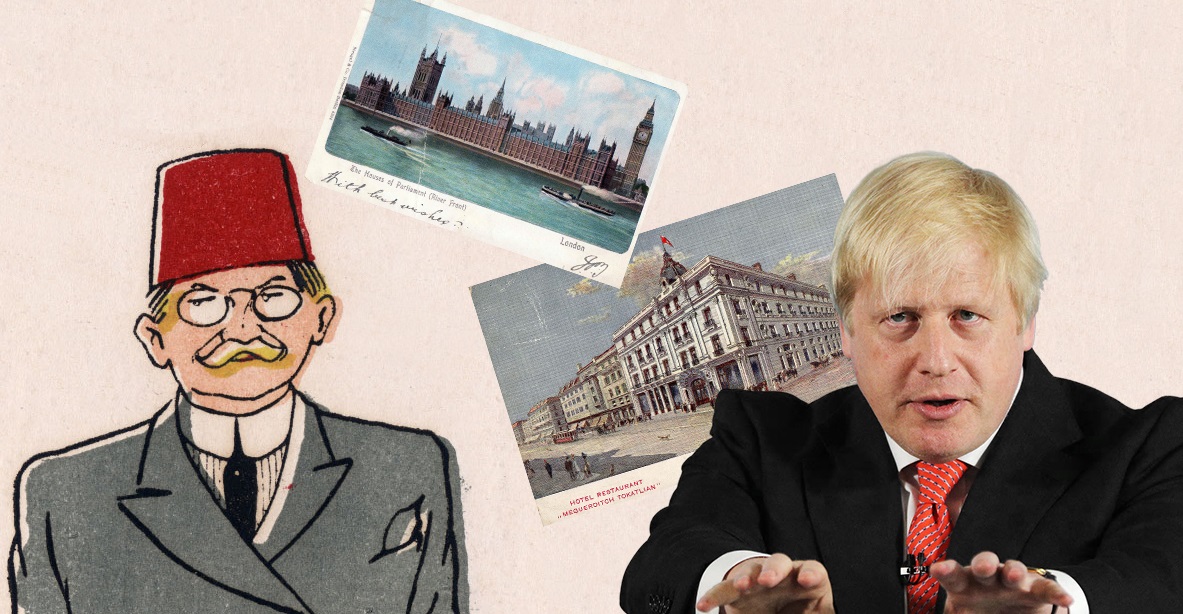
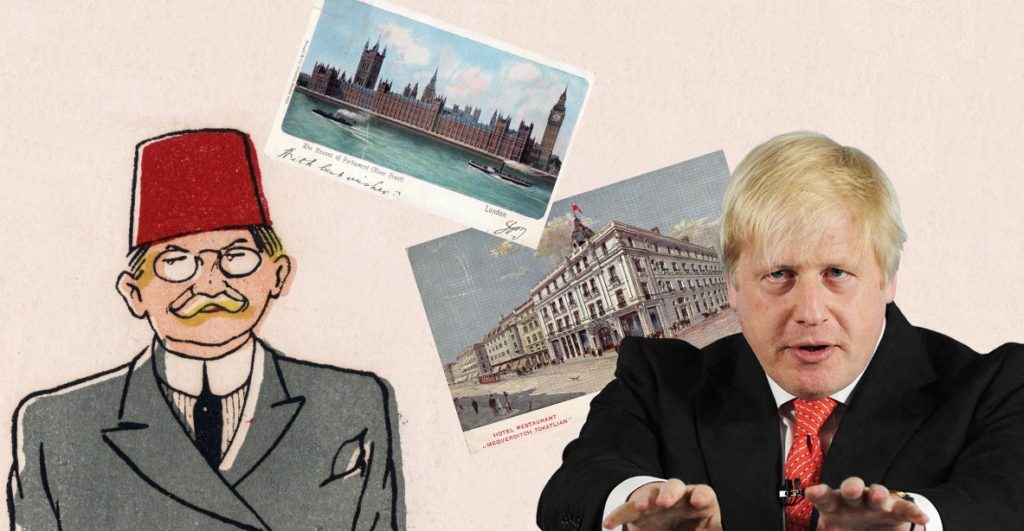
Boris Johnson, Britain’s lovably eccentric Foreign Secretary is seldom, if ever, brought up in relation to topics of Armenian interest (though that he won the “most offensive Erdogan poem” competition is certainly of interest to our community. What did he do with the £1,000 prize? Your guess is as good as mine!). In fact, he is so removed from the Armenian conversation, that one might be forgiven for thinking his first formal contact with Armenia came in the form of a 15 minute-long phone conversation with a Russian prankster claiming to be the newly elected Prime Minister of Armenia, Nikol Pashinyan.
But curiously enough, the Johnson family history is intimately, if not fatalistically, tied to that of the Armenians. The story really begins in turn of the 20th-century Constantinople, where the young Ottoman technocrat, Ali Kemal Bey, was at the incline of a relatively modest rise into the ranks of the Bosphorus intelligentsia.
Kemal, the son of a Circassian slave and a Turkish business magnate, had grown up in all the comforts expected of his privileged status. He was educated in the prestigious new schools set up by Sultan Abdul Hamid in the hopes of preparing the dying empire’s future generation of technocratic reformers.
Instead, these campuses became hotbeds of opposition to the Sultan’s absolutist ruling style. Graduates, who took on the monicker Young Turks (this is before they were known for Armenian Genocide, or hosting left-wing talk shows), had adopted a decisively Western-oriented outlook, spoke fluent French and longed to replicate the democratic, bureaucratic and industrial reforms they had witnessed in the capitals of Europe in their own country. His time in the Ottoman school system exposed Kemal to liberal ideas, causing him much trouble with the authorities. He was eventually imprisoned and exiled to Syria.
In time, Kemal developed an ‘Ottomanist’ ideology. He argued for a free and multicultural Ottoman Empire, united under a civic Ottoman identity rather than ethnic nationalism. He had been vocal about the Empire’s treatment of its minorities such as the Armenians.
Kemal’s family wealth afforded him the luxuries of travel, and London quickly became a favorite destination. He met his first wife, a British woman named Winifred Brun in one such sojourn. By the time she died while giving birth in 1910 to Osman Kemal Wilfred Johnson—Boris Johnson’s grandfather (are you connecting the dots now?)—the situation in Kemal’s native Constantinople was changing rapidly.
Abdul Hamid II, by now known through the macabre epithet ‘the Red Sultan’, had finally been overthrown following the Young Turk revolution an attempted counter-coup. A resolute liberal and anglophile, Ali Kemal strongly disapproved of the Committee for Union and Progress’ (CUP) instigation of the 1913 Ottoman coup d’état. He denounced the “Three Pasha’s” authoritarian rule and increasing overtures towards Germany. While his contemporaries in the CUP—the major force behind the increasingly nationalist Young Turk movement—had so admired social-Darwinism and Meiji-Era Japan, Kemal had looked to Britain as a model for bureaucratic reform, industrial growth and democratic proliferation.
It is in this period of turmoil that Kemal briefly returned to Constantinople, marrying his second wife before escaping to Britain with his children. In a feat of poetic irony, Kemal’s son by his second wife, Zeki Kuneralp, would years later become the intended victim of a failed ASALA attack while serving as Turkish ambassador in Madrid.
Kemal made the most of his British exile. As the Great War unfolded, he spoke out passionately and repeatedly against the deportations, expropriations and organized massacres now known as the Armenian Genocide. He was also unequivocal in placing the blame directly on the CUP leadership. Putting pen to paper in his opus magnum, Fetret (“Interregnum” in Turkish) written as a sort of ode to his son Wilfred, he laid out his vision for a modern Turkey: monarchical, but constitutional; Islamic, yet secular; modern, while rooted in tradition; distinctly Turkish, yet welcoming of its Armenian and Greek minorities.
Ali Kemal would soon see the opportunity to participate in the creation of the country he had so dreamed of. By 1918, the defeated Ottoman government, exhausted from four years of fighting, signed the Armistice of Mudros, formally ending military operations. The CUP was swiftly deposed to be replaced by a provisional government under the supervision of the Allied occupation force. Ali Kemal Pasha briefly served as Interior Minister (a post once held by Talat Pasha), where he oversaw the establishment of the first court-marshals against the perpetrators of the Armenian and Greek Genocides.
But Kemal’s zealous struggle to prosecute the CUP, combined with his reputation as an Anglophile, brought him many enemies in interbellum Turkey. His vocal opposition to Mustafa Kemal Ataturk’s increasingly popular nationalist movement proved to be the last straw.
In November 1922, he was kidnapped from a barbershop mid-shave. Coincidentally, this barbershop was located in the lobby of the Armenian-owned Tokatlıyan Hotel in Beyoğlu. The hotel had been one of the first European-style establishments in Turkey. Having survived vandalism during the Genocide, it was eventually reacquired by the Armenian Church, which maintains the property to this day. Kemal’s fate would much more tragic.
His captors placed him on a train to Ankara, where he would be tried for treason by the Kemalist authorities. The train never reached its destination. He was apprehended shortly after his departure and lynched by an angry mob. The crowd hung a sign with the fictitious, Armenian-sounding name “Artun Kemal” around his neck as a final display of indignity for his defense of the Armenians.
His memory would live on in Turkey as one of the country’s most iconic traitors.
In Britain, Kemal’s characteristically unconventional charisma would echo in his great grandson, Boris Johnson: a “small-c” conservative, a defender of the monarchy with great confidence in the strength of the British model and a tendency to make public gaffe after gaffe. Johnson even praised his great-grandfather in a 2008 interview with the BBC, saying “he stuck to his guns.”
One can only hope that Johnson would follow in his family’s footsteps and demand modern recognition of the very genocide for which his great-grandfather worked so very hard to seek justice.




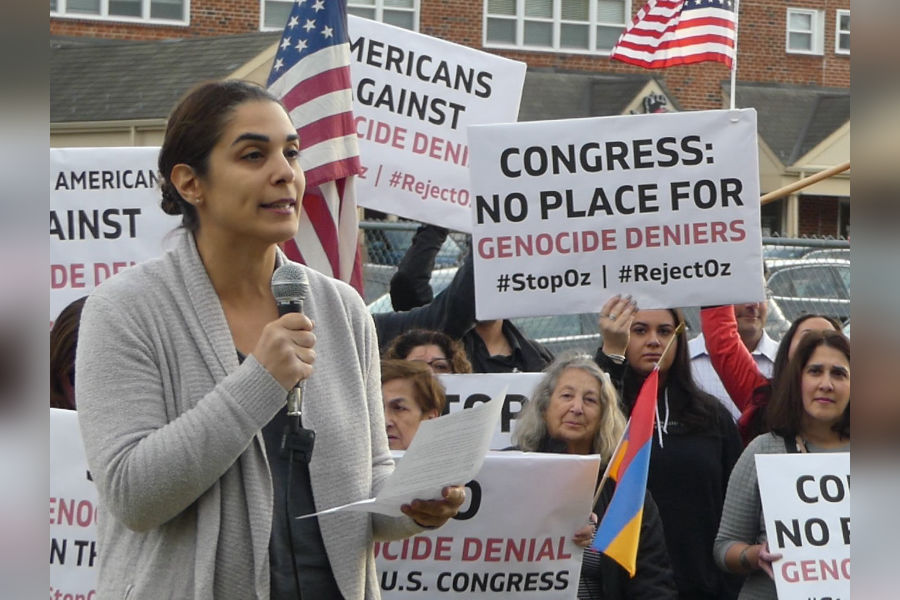
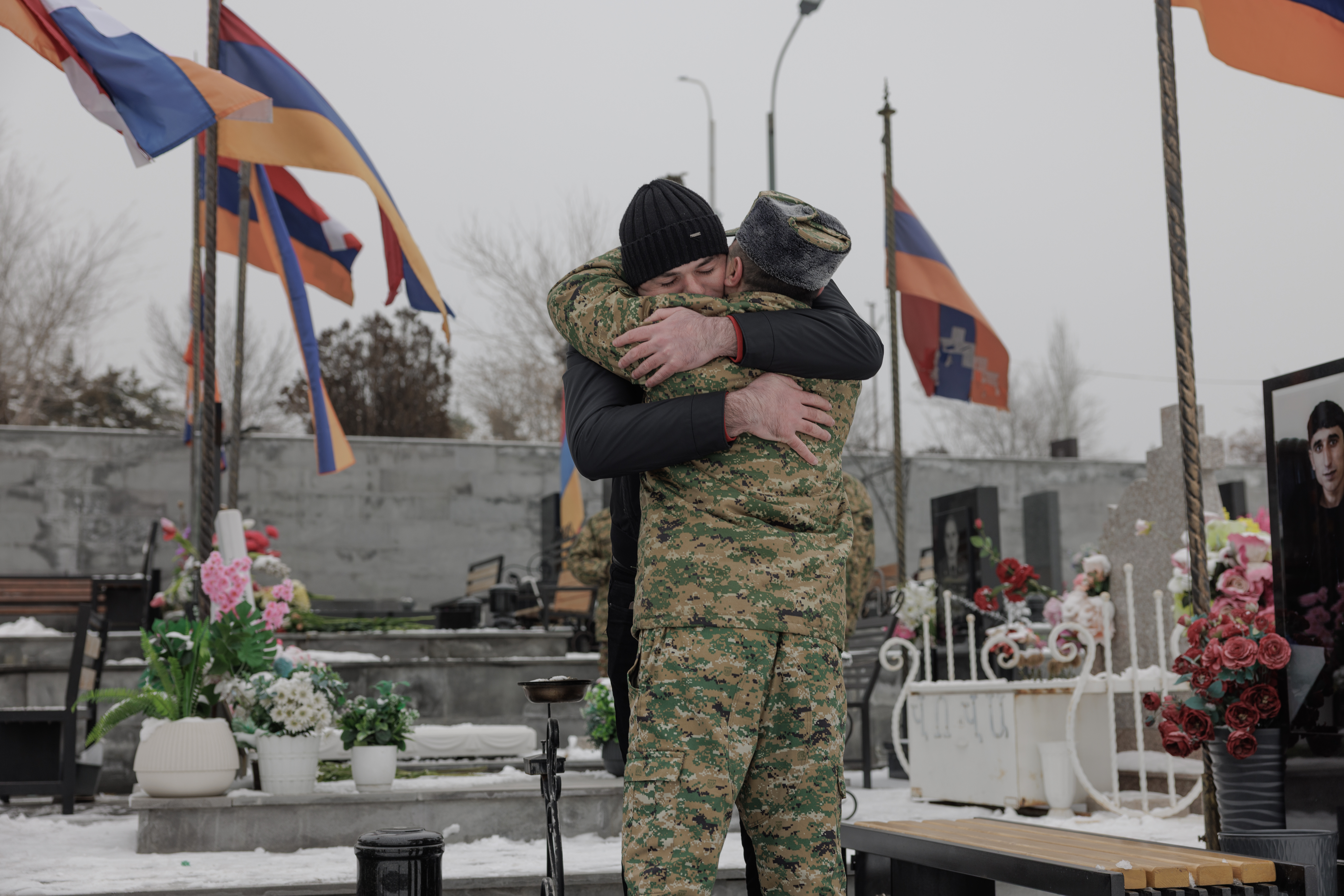
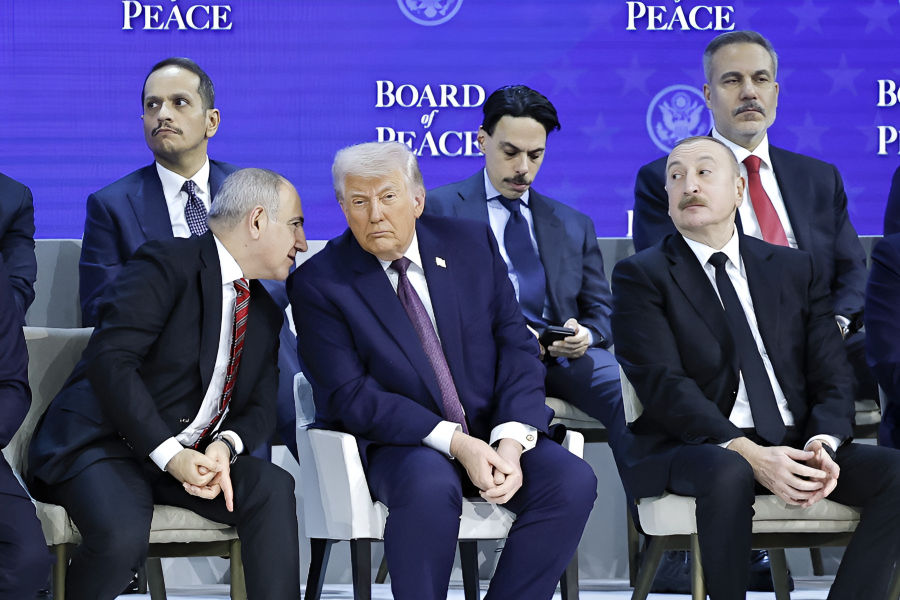

What an interesting and well written article. It put my suspicions to rest that he was Russian. Thank you.
Nora, Ira dznoghneri goghmits Russastani Hryagan dzakum uni.
Interesting article – the Kemals moved to England and changed their surname to ‘Johnson’ – the maternal family name. So, if names were not changed – then following the family line, shold be Boris Kemal. It is a shame that Boris is not like his great grandfather, Ali Kemal Beya, a liberal thinker.
Interesting to see that we all have different ethnicity and all part of the human race. It makes the human race more exciting! Otherwise, we would all look like the Habsburgs :-))
Very interesting article. Ali Kemal Pasha was a Humanist. Shameful were the Armenian, Greek, Assyrian genocides in Turkey. Nothing justifies minority oppression, pogrom etc. Truly, Boris Johnson is an one man ‘Melting Pot’. Let’s see how he fares as PM.
@Dotty Dot — Boris is a social liberal, and also a liberal democrat capitalist. When you say too bad he is not a liberal, what do you mean? You mean he is not a socialist wanting to expropriate the means of production? That would be horrible. True liberal would never do that. Liberalism is capitalism with a welfare state. That is what Boris is.
A fascinating story. I look forward to an interview with Johnson. I wonder if Robert Fisk knows this history.
Ali Kemal was lynched by the orders of Sakalli (Bearded) Nurettin Pasha, who also organized the Great Fire of Smyrna: https://en.wikipedia.org/wiki/Nureddin_Pasha
Very interesting, Raffi:
I had heard of Boris Johnson’s ancestry, but you have painted such a comprehensive picture of that part of history, and you have approached it from such an angle, that I now look at Boris Johnson with empathy.
Thank you.
You wrote “Instead, these campuses became hotbeds of opposition to the Sultan’s absolutist ruling style. Graduates, who took on the name Young Turks (this is before they were known for Armenian Genocide, or hosting left-wing talk shows), had a decisively Western-oriented outlook, spoke fluent French, and longed to replicate the democratic, bureaucratic, and industrial reforms they had witnessed in the capitals of Europe in their own country”
Great article, but please look a bit more deeply into the young turk movement and its donmeh roots. Don’t be as easily fooled as some of us were circa 1913…
Their donmeh roots is a part of antijewish conspirology. Not a single proof. To the contrary there is information about slavic, albanian etc roots.
The Young Turks were definitely influenced by the donmeh. They did have large influence on education in that area of the Ottoman Empire, I’ll admit that. That said, the Young Turks were rooted more in pervasive liberal ideology than in Hebraic efforts to damage Christians and Muslims. I don’t think it’s fair to say that their roots are entirely in the donmeh, which is what I think you’re trying to imply.
Also, Alexander, calling anything about the donmeh “antijewish” is not an argument. The donmeh definitely existed and had major influence on education. Even the wikipedia page, which devotes a whole section to smearing anyone who brings them up as anti-semetic, admits their influence.
Fascinating read, especially for an inaugural article. I hope you continue with much success here. On a side note, I knew I liked Boris Johnson, but I could never put my finger on it. Now I have an excellent story for when I introduce British friends to Armenian culture.
Thank you Raffi. This is very informative.
A true story …very well written. Till today Armenian genocide unrecognized by English Parlament while it is recognized by Welch, Scotts & Irish…Shame on England… aren’t all part of UK !!!
Well-written, funny and informative. I look forward to reading more.
Interesting article appriciate more such stories
Boris Johnson is no lovable eccentric. He is narcissistic even for a Tory, and a serial liar. His time as London Mayor was spent wasting millions on vanity projects which never came to fruition. He is the worst Foreign Secretary we gave had.
He will make a truly dreadful Prime Minister, but it is anticipated that this will give an increase in support for Scottish independence, enabling Scotland to free itself from the increasingly right wing, xenophobic and racist cess pit that peri Brexit England is becoming.
Well said Sir!
I only wish England was as you described. Maybe London would be on the verge of being liberated from foreign occupiers and the native inhabitants under siege would breathe a sigh of relief.
Very interesting background to our (UK) new Prime Minister.
Of over-riding concern is that (allegedly) he is a serial liar,who- like trump – shoots from the hip, has poor grasp of detail and has vowed to take us out of the EU!
He will make Britain grate again…..:(
Nice read and well written article. Barekallah!
Good to see that Armenia is a vibrant state unlike some of its neighbours.
Espérons aussi, cela pourrait apporter un argument de plus, pour l’indépendance et reconnaissance de l’Artsakh(Karabagh)
Merci Raffi de nous avoir éclairé sur les origines et l’histoire de la famille Ali Kemal
Boris Johnson.
It is one thing to say that Boris Johnson’s great-grandfather Kemal had a “… vision for a modern Turkey: monarchical, but constitutional; Islamic, yet secular; modern, while rooted in tradition; distinctly Turkish, yet welcoming of its Armenian and Greek minorities,” and another to wish that “Johnson would follow in his family’s footsteps and demand modern recognition of the very genocide for which his great-grandfather worked so very hard to seek justice.” This latter claim flies in the face of the legacy of the longest living dynasty in history, namely that of the Ottoman Empire, in which not only the Armenian and Greek minorities, but more than 30 different ethnic groups lived in peace and harmony for six centuries. Oh why, why oh, Armenians of the unlike of ASALA do not learn from their ancestors who rose to the highest levels of the society in prosperity and freedom of worship? I happen to believe that Boris Johnson is of that unique character who would not be bullied into accepting something that’s made-up and fake. We have to give credit where it’s due. I expect him to urge the parties involved to sit down together and get to the bottom of what really happened during those horrible times of the World War I and let the chips fall where they may. For that to take place, we have to forget about the Diasporians who have created this fanciful money-making machinery, but work with the real Yerevanians of Armenia who live in Armenia and for that matter in Turkey. By the way, I do not understand how and why the Diasporians still can tolerate and support the hatred and viciousness that ASALA has been spreading about even during our lifetimes. It will never end, unless and until some Yerevanians take it into their own hands. Hopefully, that day will come. But for now, I will add the name of Boris Johnson’s aunt’s name Neclâ Kuneralp to the list of more than 40 diplomats and their wives or children and others they have ruthlessly killed, to commemorate her death every year on 2 June along with her brother, a retired Ambassador Beşir Balcıoğlu, and driver of her diplomatic vehicle Antonio Torres at the hands of ASALA .
How can you possibly compare the murders of 40 Turkish diplomats and their relatives to the murders of over 1.8 million Armenians (1.5 million during the 1915-1922 Armenian Genocide; 300,000 during the 1894-96 Hamidian Massacres; and 30,000 during the 1909 Adana Massacre)?
As for ASALA, it doesn’t exist anymore. It disbanded, back in the 1990’s.
And yes, the three genocides that your Turk forefathers committed against the Armenians, Greeks, and Assyrians does indeed fly in the face of the horribly shameful legacy of the Ottoman Turkish Empire.
Sevgin oktay commits a colossal distortion of historical facts! Do the pictures of killing fields for the Armenians, the Greeks and the Assyrian say the truth or not! If he thinks that are fake ashamed on him!
I pray for Boris Johnson’s quick recovery from this Coronavirus disaster. My ancestors have Egyptian ties. I will study Boris Johnson’s lineage from the Ottoman archive. I do believe that English Kemal was not a traitor. Opponents of each diplomatic figures, tend to throw mud at each other. Prince Sabahattin was an Ottoman prince who worked with Boris Johnson’s great grand father. It is not the time to go into history, I am more interested in Boris Johnson’s future. I hope his new baby brings loads and loads of good luck….. Get Well Soon Prime Minister.
Greatly written article!